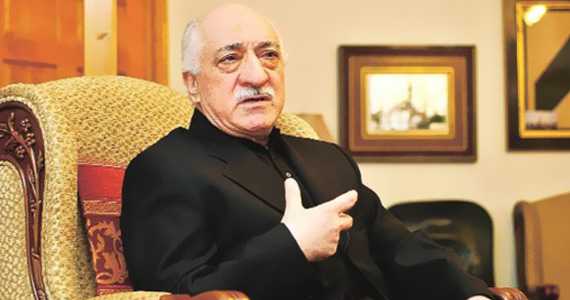Küçük knows Gülen for a long time
Güney, in his statement in 2001, claims that he and Mehmet Demircan, an important name in Fethullah Gülen’s movement, spent intense efforts to gain Küçük into the movement and that the two [Gülen and Küçük] knew each other for a long time.
Tuncay Güney’s statement in 2001, which he gave to Istanbul police, is one of the most fundamental pieces of evidence that Ergenekon prosecutor Zekeriya Öz, is working on. In this statement, Tuncay Güney gave a detailed explanation of Fethullah Gülen’s movement. In the Ergenekon indictment’s 442nd file, there are interesting claims that Güney made. Here, Güney claims that, since the 1970s, Fethullah Gülen knew retired Brigadier General Veli Küçük, who is under arrest in the Ergenekon case, from the right-wing National Struggle Movement (MMH). Güney explained that he learned that Küçük and Fethullah Gülen knew each other for a long time, while he and one of Gülen’s prominent members, Mehmet Demircan, made efforts to gain Küçük to the movement.
“All of them are strugglers for nationalism”
When Tuncay Güney was detained in 2001 for by Istanbul police for fraud, he was working for Samanyolu TV, which is linked to the Fethullah Gülen movement. In the statement he gave to police while under interrogation, he pointed out that taking advantage of his position, he had the possibility to meet with important names in Fethullah Gülen’s movement.
Within this framework, Güney mentions that he and Demircan tried to gain, the then active duty Veli Küçük, for the movement. “When we gain him, we will be more powerful in the eyes of Fethullah Gülen,” Güney says.
Again, referring to Demircan, Tuncay Güney ascribed the information that Gülen knew Veli Küçük from the National Strugglers’ Movement. “Look at all of Fethullah Gülen’s members; they are all National Strugglers,” he said.
Support for Gülen’s schools
In his statement, Güney said that Veli Küçük helped Fethullah Gülen to open a school in Northern Iraq [South Kurdistan]. According to Güney’s statement, they had stopped in Diyarbakır, where they were on the way to Erbil, in order to open private Irbil Light College. There (in Diyarbakır), they called Veli Küçük to let him know they were there, thus Jandarma Regional Commander Eşref Hatipoğlu met them. Hatipoğlu sent Güney and Gülen’s members to Silopi in a military helicopter. From there, the group passed to Nehciban (there he means Neçirvan) and talked to Barzani and Talabani.
“Veli Küçük’s teacher collared Erdoğan”
Güney also made a statement about field officer Necabettin Ergenekon’s involvement with Gülen’s movement. According to Güney, Necabettin Ergenekon was Küçük’s teacher. According to Güney’s claims, Necabettin Ergenekon had talks with R. Tayyip Erdoğan, then the Refah Partisi (RP) Istanbul chairman. In one of these talks, Ergenekon caught Erdoğan by the collar and shook him. According to Guney’s statement, Erdoğan, in RP’s Tepebaşı office, was having a discussion with Necabettin Ergenekon about pan-Islamism. Then Ergenekon became nervous and grabbed Erdoğan by the collar saying, “This is bullshit, Tayyip; there won’t be pan-Islamism if there isn’t Turkism.”
Güney said that the person who introduced him to Veli Küçük, was Veli Küçük’s teacher, Ergenekon. “The field officer in Izmit (Veli Küçük), is my student. I’ll take you and introduce you to him” said Ergenekon according to Güney.
It was claimed that Küçük had named the Ergenekon organization after his teacher’s last name.
He spied for Eymür about Gülen
In his statement, Güney said that when he was in Fethullah Gülen’s movement, he was regularly informing MİT chairman Mehmet Eymür’s staff. Güney said, “When I was working there, Mehmet Eymür’s men would come and get information periodically . . . Besides this information, they were asking about the hot issues in the movement anyway.”






